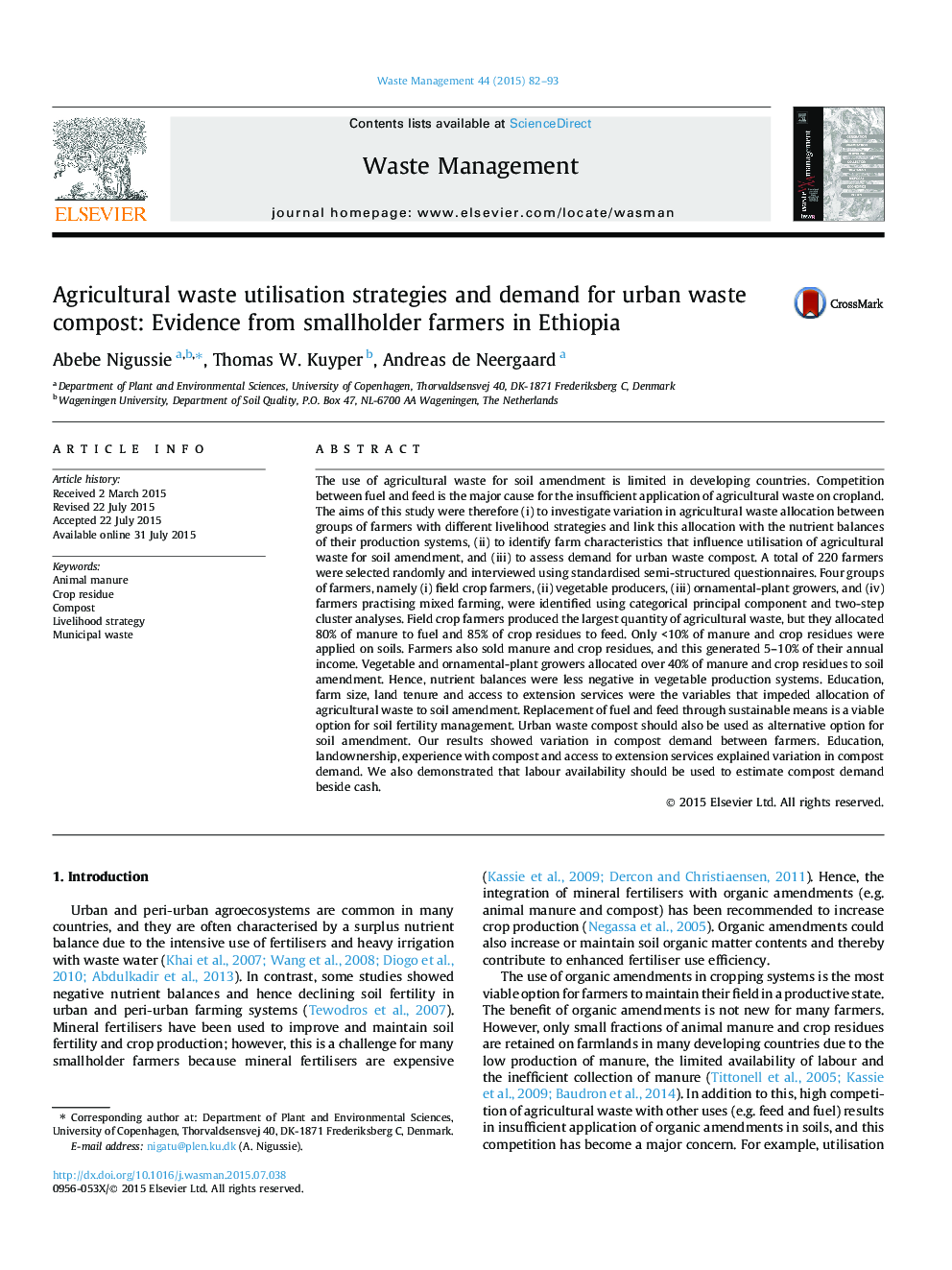| کد مقاله | کد نشریه | سال انتشار | مقاله انگلیسی | نسخه تمام متن |
|---|---|---|---|---|
| 4471360 | 1622641 | 2015 | 12 صفحه PDF | دانلود رایگان |
• Competition in agricultural waste utilisation.
• Farm characteristics influence agricultural waste allocation.
• Urban waste compost demand is underestimated.
• Labour should be included to estimate compost demand.
The use of agricultural waste for soil amendment is limited in developing countries. Competition between fuel and feed is the major cause for the insufficient application of agricultural waste on cropland. The aims of this study were therefore (i) to investigate variation in agricultural waste allocation between groups of farmers with different livelihood strategies and link this allocation with the nutrient balances of their production systems, (ii) to identify farm characteristics that influence utilisation of agricultural waste for soil amendment, and (iii) to assess demand for urban waste compost. A total of 220 farmers were selected randomly and interviewed using standardised semi-structured questionnaires. Four groups of farmers, namely (i) field crop farmers, (ii) vegetable producers, (iii) ornamental-plant growers, and (iv) farmers practising mixed farming, were identified using categorical principal component and two-step cluster analyses. Field crop farmers produced the largest quantity of agricultural waste, but they allocated 80% of manure to fuel and 85% of crop residues to feed. Only <10% of manure and crop residues were applied on soils. Farmers also sold manure and crop residues, and this generated 5–10% of their annual income. Vegetable and ornamental-plant growers allocated over 40% of manure and crop residues to soil amendment. Hence, nutrient balances were less negative in vegetable production systems. Education, farm size, land tenure and access to extension services were the variables that impeded allocation of agricultural waste to soil amendment. Replacement of fuel and feed through sustainable means is a viable option for soil fertility management. Urban waste compost should also be used as alternative option for soil amendment. Our results showed variation in compost demand between farmers. Education, landownership, experience with compost and access to extension services explained variation in compost demand. We also demonstrated that labour availability should be used to estimate compost demand beside cash.
Journal: Waste Management - Volume 44, October 2015, Pages 82–93
